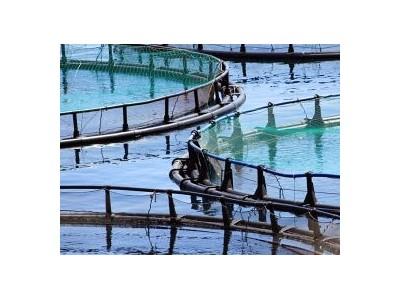Eight Global Contestants Advance in Fish-Free Feed Challenge

GLOBAL - The F3 Fish-Free Challenge has announced that eight multi-national teams have qualified to participant in the global fish-free feed technology contest. Contestants from Thailand, Indonesia, China, South Africa, Australia, Pakistan, Myanmar (Burma), the Netherlands, Belgium, and the US are advancing to the first sales reporting stage of the multi-stage contest to develop fish-free feed for the aquaculture industry.
The F3 Fish-Free Feed Challenge launched in November 2015 on the HeroX crowdfunding site to encourage innovation of alternative ingredients for aquaculture fishfeeds, improve the industry's sustainability, and to reduce pressure on wild-caught fish to supply fishfeed components. The contest is intended to help catalyze the development and sale of cost-competitive, viable aquafeeds free of fishmeal and fish oils.
The United Nations Food and Agricultural Organization (FAO) reports indicate that by 2030 25 per cent less wild-caught seafood will be available than is today and a similar shrinkage will occur in aquaculture unless it can overcome key constraints, including a shortage of fishmeal for feeds. The FAO estimates than over 18 million tons of wild-caught fish are used each year to make fishmeal and fish oil. These small schooling fish, known as forage fish, include sardines, herring, anchovy and menhaden.
“While the global aquaculture industry has made strides to stretch the limited amount of fishmeal and fish oil to rear more fish and shrimp, there is a severe need to find alternatives to these marine products to feed aquaculture-raised fish,” said University of Arizona Professor Kevin Fitzsimmons, the former president of the World Aquaculture Society and lead spokesperson for the F3 Challenge.
Fisheries models only focus on the amount of wild-caught fish removed year after year to predict yield for commercial fisheries. These models do not account for the impacts to the species that depend on forage fish for food such as marine mammals, seabirds, and larger fish. Fisheries managers may need to further limit catches of forage fish so that commercial fisheries for larger fish, such as cod, tuna and salmon, will continue to exist.
Eight registered teams have submitted a specimen of feed that they want to qualify for the contest, which are currently being analyzed to ensure they are free of fishmeal and fish oils.
The first company to produce and sell 100,000 metric tons (MT) of aquafeeds that do not contain marine animal meal or oil will be awarded a more than $200,000 prize to support their fish-free aquafeed business. If none of the contestants have met the 100,000 MT target by September 15, 2017, the prize will go to the company closest to the target.
Contestants range from companies with their own mills and farms with multinational sales and hundreds of employees to start-up farms and ingredient companies with just a dozen employees.
Farms and ingredient suppliers partnered with feedmills to form larger teams. Companies submitted feeds for a range of seafood including shrimp, tilapia and trout.
The Monterey Bay Aquarium, New England Aquarium, University of Arizona and World Bank are sponsoring the F3 Challenge, with additional donations to support the administrative costs of running the prize.
Related news
 Fishing Ban Welcomed After Earthquake Damages Fisheries
Fishing Ban Welcomed After Earthquake Damages Fisheries NEW ZEALAND - Following the 7.8 magnitude earthquake in the South Island of New Zealand that has damaged the Kaikoura fisheries, a $2 million science package
 New Soy-Based Feed Aims to Revolutionise Aquaculture Feedstocks
New Soy-Based Feed Aims to Revolutionise Aquaculture Feedstocks US - The Ohio Soybean Council (OSC) has funded research partners Battelle and Kentucky State University to develop and evaluate a new technology
 Disease Threatening Kerala Aquaculture Production
Disease Threatening Kerala Aquaculture Production INDIA - Recurring epizootics and the emergence of new aquatic animal diseases are increasingly threatening aquaculture production in the state of Kerala